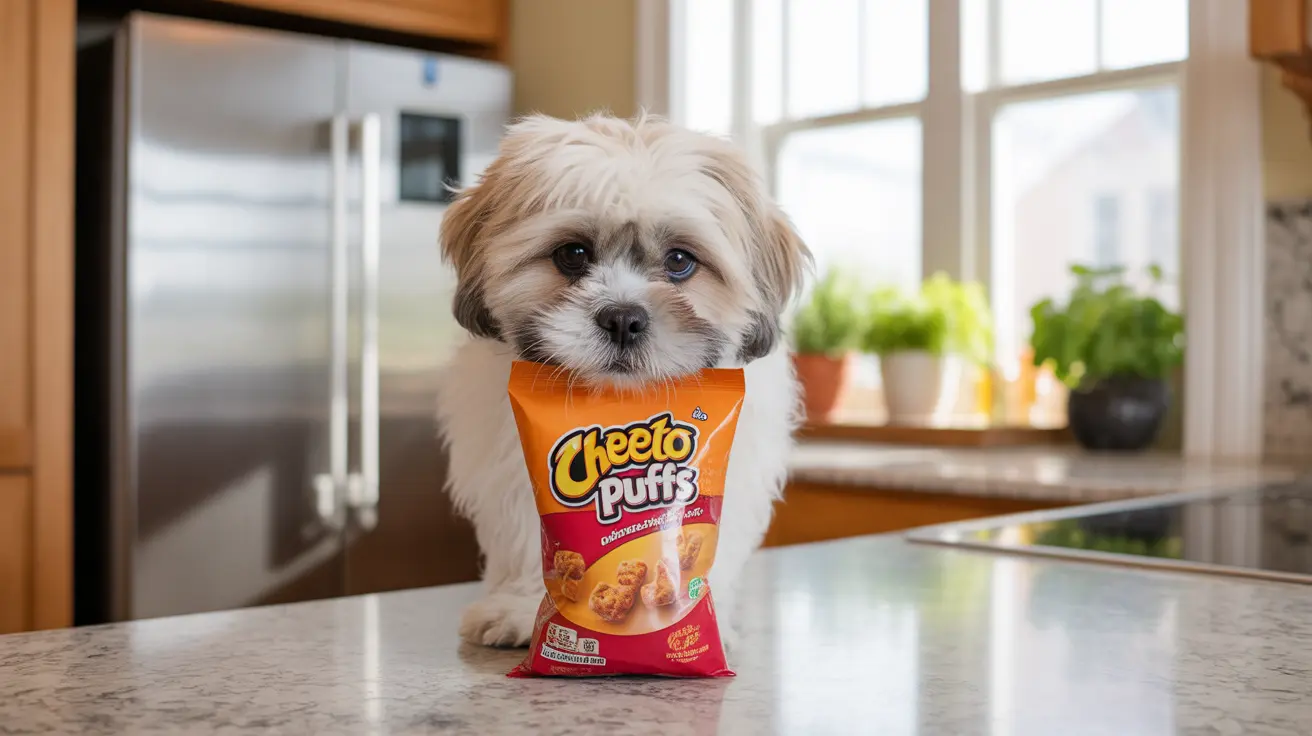As pet owners, we often wonder if we can share our favorite snacks with our furry friends. One common question that arises is whether dogs can safely eat Cheeto puffs. While these orange, cheesy snacks might seem tempting to share, understanding their potential impact on your dog's health is crucial.
This comprehensive guide will explore the safety concerns, health risks, and alternatives to feeding your dog Cheeto puffs, helping you make informed decisions about your pet's snacking habits.
Understanding the Risks of Cheeto Puffs for Dogs
Cheeto puffs contain several ingredients that can be problematic for dogs. The high levels of salt, artificial flavors, preservatives, and processed fats make them an unsuitable choice for canine consumption. Even small amounts can potentially trigger digestive issues in sensitive dogs.
Key Problematic Ingredients
The main concerning components in Cheeto puffs include:
- High sodium content that can lead to dehydration
- Artificial flavors and preservatives
- Processed fats that may trigger pancreatitis
- MSG and other flavor enhancers
- Artificial coloring agents
Health Concerns for Dogs Eating Cheeto Puffs
Regular consumption of Cheeto puffs can lead to several health issues in dogs:
Short-term Effects
- Digestive upset and diarrhea
- Excessive thirst
- Vomiting
- Gas and bloating
Long-term Risks
- Obesity
- Heart problems
- Kidney issues
- Chronic digestive problems
- Potential food allergies
What to Do If Your Dog Eats Cheeto Puffs
If your dog has consumed Cheeto puffs, don't panic. Monitor them for any adverse reactions and follow these steps:
- Assess the quantity consumed
- Watch for unusual symptoms
- Ensure fresh water is available
- Contact your vet if concerning symptoms develop
Healthy Alternatives to Cheeto Puffs
Instead of Cheeto puffs, consider these dog-friendly snacks:
- Small pieces of plain, low-fat cheese
- Carrots
- Apple slices (without seeds)
- Commercial dog treats
- Plain, air-popped popcorn (unsalted)
Frequently Asked Questions
Can dogs safely eat Cheeto puffs, and what are the health risks involved?
While not immediately toxic, Cheeto puffs are not safe for regular dog consumption. They contain high levels of salt, fat, and artificial additives that can cause digestive issues, obesity, and other health problems.
How many Cheeto puffs can I give my dog without causing digestive problems?
It's best not to give your dog any Cheeto puffs intentionally. Even small amounts can cause digestive upset in sensitive dogs, and regular consumption can lead to health issues.
Are flavored Cheetos like Flamin' Hot safe for dogs to eat?
No, flavored Cheetos, especially Flamin' Hot varieties, are particularly dangerous for dogs. They contain spicy seasonings and additional artificial ingredients that can cause severe digestive distress and other health problems.
What signs should I watch for if my dog eats Cheeto puffs accidentally?
Monitor your dog for excessive thirst, vomiting, diarrhea, lethargy, or unusual behavior. If you notice any of these symptoms, especially after consuming a large amount, contact your veterinarian.
What are healthier snack alternatives to Cheeto puffs for dogs?
Healthy alternatives include small pieces of fresh fruits and vegetables (like carrots or apple slices), plain low-fat cheese, or commercially produced dog treats specifically designed for canine consumption.
Conclusion
While Cheeto puffs might be a beloved human snack, they're not appropriate for dogs. The risks associated with their consumption far outweigh any momentary enjoyment your pet might get. Instead, stick to dog-specific treats or natural, healthy alternatives that will keep your furry friend happy and healthy.






